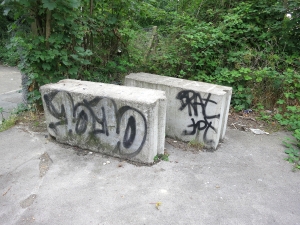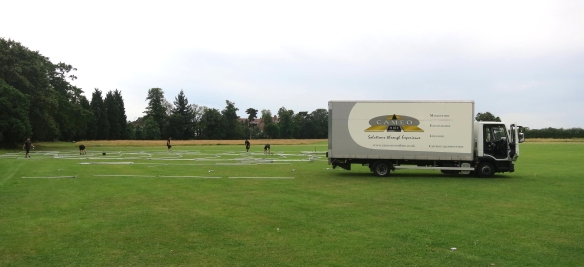
When I walked past it on 15th August 2012, as often, before 10 a.m. opening time, when it would open, there was a queue outside Merton Citizen’s Advice Bureau. These offices, now found all over London, are charities where people in need may obtain information, and at certain dedicated times, free legal advice. Relying on various sources of funding, their opening hours are restricted. This put me in mind of Charles and Betty Wegg-Prosser. By the time I joined the Beauchamp Lodge Settlement Committee in 1974, Charles was no longer actively involved, although Betty was in the chair, where she remained for some years until I took over the position. She was still a lively and influential member. As a leading Labour Lawyer, Charles had, I think, founded the Paddington Citizen’s Advice Bureau. This was a couple who gave a great deal to the poor and underpriveleged of Paddington.
Wikipedia has this to say: ‘Charles Wegg-Prosser (16 August 1910 – 7 October 1996) was a British politician and solicitor.
Wegg-Prosser attended the Downside School, then studied at Oriel College, Oxford, and became a solicitor. In 1934, he joined the British Union of Fascists (BUF), soon becoming director of the group’s Shoreditch branch. For the April 1936 edition of the “Fascist Quarterly”, Wegg-Prosser wrote “The Worker and the State”, denouncing Communist governments as “controlled, not by national workers, but by parasitic Jews” and Fabianism as a “Jewish racket.”
At the 1937 London County Council election, he stood for the party in Limehouse, and the party then relocated him to Paddington.[1][2]
Wegg-Prosser became disillusioned with fascism, making contact with anti-fascist activists, and leaving the BUF at the end of 1937. He then began speaking out against the group’s anti-semitism and fondness of dictatorship, and was admitted to the Labour Party, on a year’s probation. He served in the British Army during World War II.[1][2]
In 1945, Wegg-Prosser was elected to Paddington Metropolitan Borough Council, soon becoming chair of its finance committee, and then leader of the Labour group on the council. He stood unsuccessfully in Paddington South at the 1945, 1950, 1951 and 1955 UK general elections. He campaigned against Peter Rachman, was the first chair of the North Kensington Law Centre, and was the first Labour activist to be elected to the governing body of the Law Society.[1][2][3]‘



